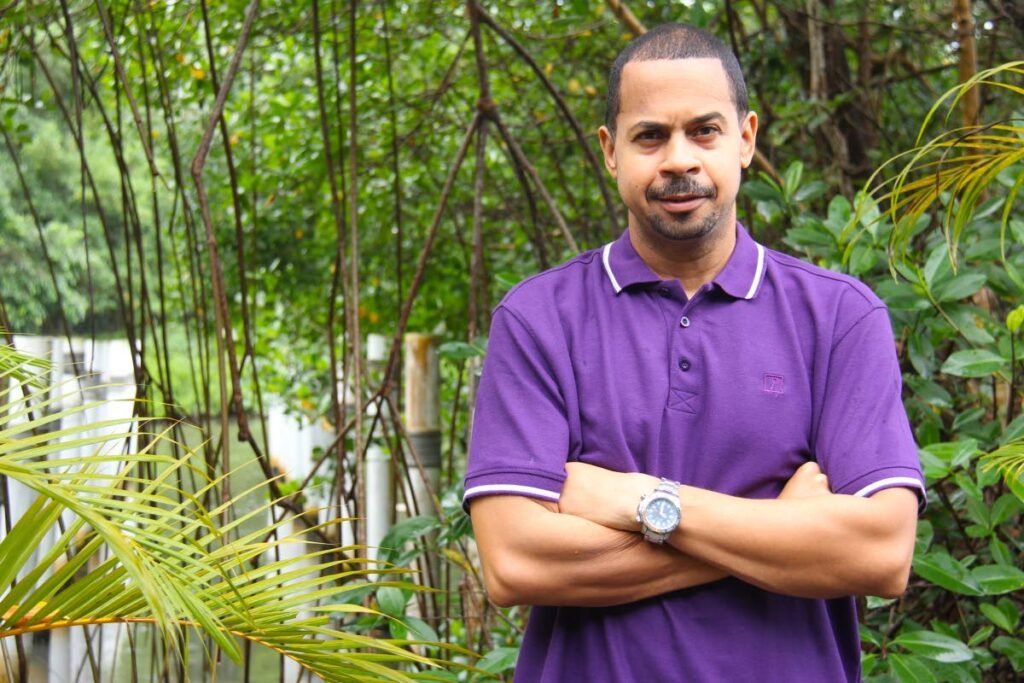When our institutions fail

Paolo Kernahan
A MAELSTROM in the police service swept up a fair bit of attention this past week. In the eye of the storm was Commissioner of Police (CoP) Erla Harewood-Christopher – arrested as a figure in an ongoing investigation into the importation of so-called prohibited sniper rifles by a civilian.
In the typical information drought that’s a package deal with our scandals and fiascos, rumours and conspiracy theories filled the air, scribbling in the narrative. The air crackled with talk of a coup, or coups even; don’t forget those sniper rifles and their implied malevolent intent!
This is all happening in a state of emergency; a delicate condition in which all our rights as citizens are on pause. The idea that there’s a putsch playing out at the very top of the one authority holding total sway over our lives is truly frightening.
Naturally, this event is being processed by the population as just another play of the month to gorge on – at least until the next. The last playbill featured the PM’s shock resignation announcement and Stuart Young’s coronation as PM-designate. That debacle wrapped itself up quite nicely, didn’t it?
While debate raged online about Harewood-Christopher’s removal and the shadowy motives behind it, lost in the discourse was a far more serious problem that delivered us to this precipice in the first place. Let’s just back up a bit – to that time of the open clash between her predecessor and PM Rowley.
After continued denials, the press reported that Dr Rowley was the "high-ranking" official who met with then chairman of the Police Service Commission (PSC) Bliss Seepersad to provide her with "information." Once in possession of that information, former CoP Gary Griffith went from number one on the merit list straight to number two under the PM’s shoe. The Seepersad-led PSC imploded shortly afterwards.
Today’s commission has been threatened with legal action by Harewood-Christopher, now languishing in purgatory with a splash of ignominy. This saga reveals again what we won’t see: our preoccupation is with the outcome (usually catastrophe) and not the weakened institutions and processes that cause it. Consequently, failure will always be the inescapable point of return on this infinite loop of nonsense called TT.
In my days as a young reporter, I attended countless news conferences at the commission. The then chairman Kenneth Lalla complained bitterly about being hamstrung by the structural inefficiencies and inadequacies of the body. That was more than 30 years ago.
In 2018 Lalla described the PSC as a failure and recalled the moment when PM Manning wanted the commission to fire police commissioner Jules Bernard. Manning’s wish was denied so he set his sights on Lalla, who jumped before he could be pushed.
Challenges at the PSC, it seems, haven’t changed much.
Judith Jones, who chaired the commission up to 2023, pointed out in a report to Parliament that the body has no investigative power. Any information it uses to make a judgement or offer an opinion must be given to it by the CoP. How would that work if the PSC is expected to make a decision that might go against a sitting commissioner?
Jones also indicated the commission can’t establish key performance indicators for officers in the service; that has to come from the CoP. So what’s the point of the PSC if it has to take so many of its cues and guidance from the organisation it’s supposed to oversee?
At the moment we’re talking about Harewood-Christopher and Suzette Martin, protagonist and antagonist, but the rot runs far deeper. These two characters are merely a blip on an expansive timeline of institutional failure.
As an example, the process of selecting a commissioner has always been, certainly in my lifetime, more fraught with challenges than a lunar landing.
Just the appointment of a stand-in for Harewood-Christopher, who has been hung out to dry like orange peel, required parliamentary debate. MPs had to waste their time on a matter that should rightly be the domain of the commission.
The PSC is, by all appearances, an inert institution that bends like a reed to politicians because it has no real institutional spine. Our institutions seem almost designed to fail. The country is left to rely on politics for solutions, which is like relying on chalk for moisture.
And us citizens? That’s why these fleeting paroxysms of outrage have become a national pastime. We sweat the small stuff that’s just symptomatic of the cancer eating away at the country.

Comments
"When our institutions fail"